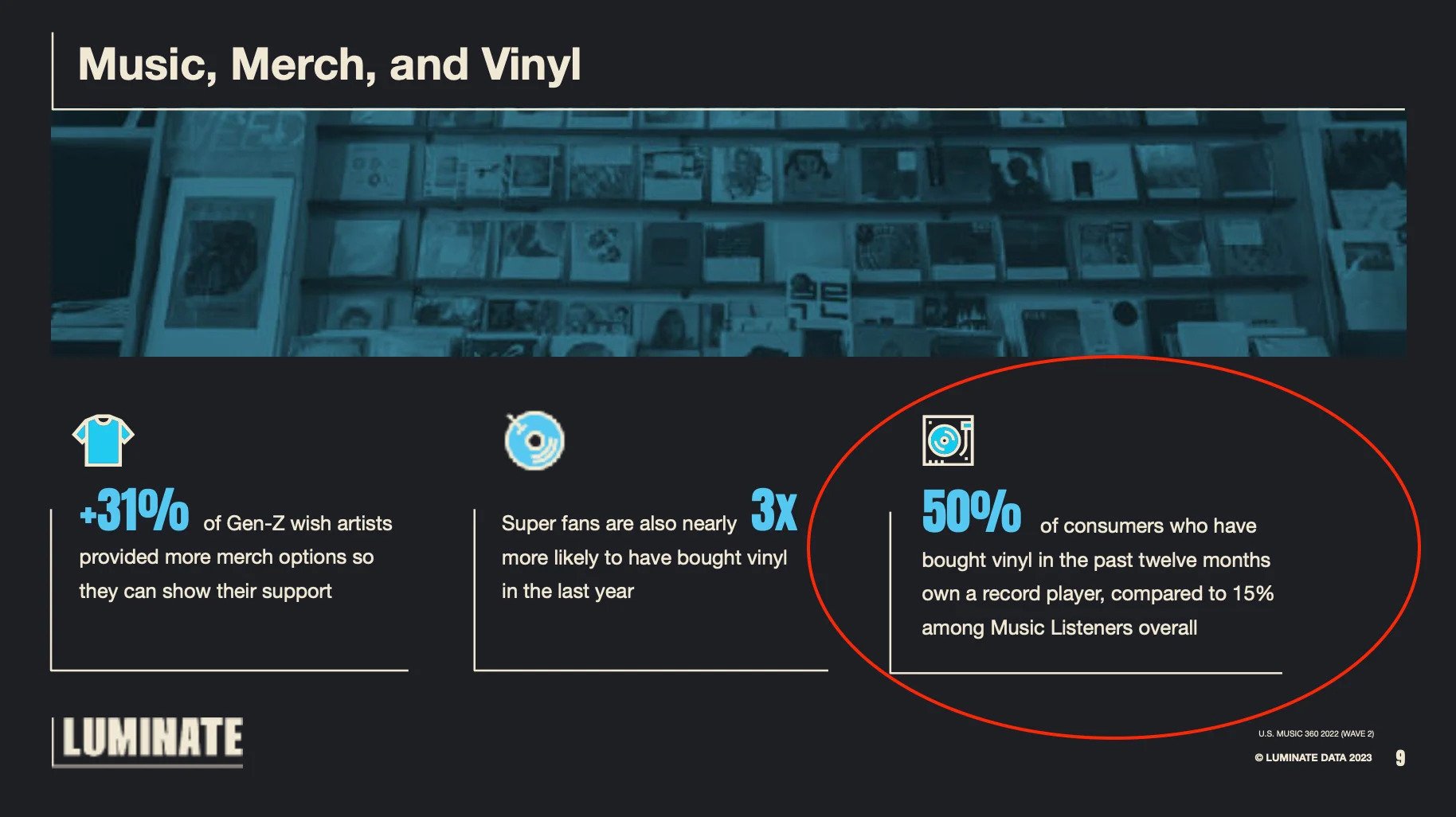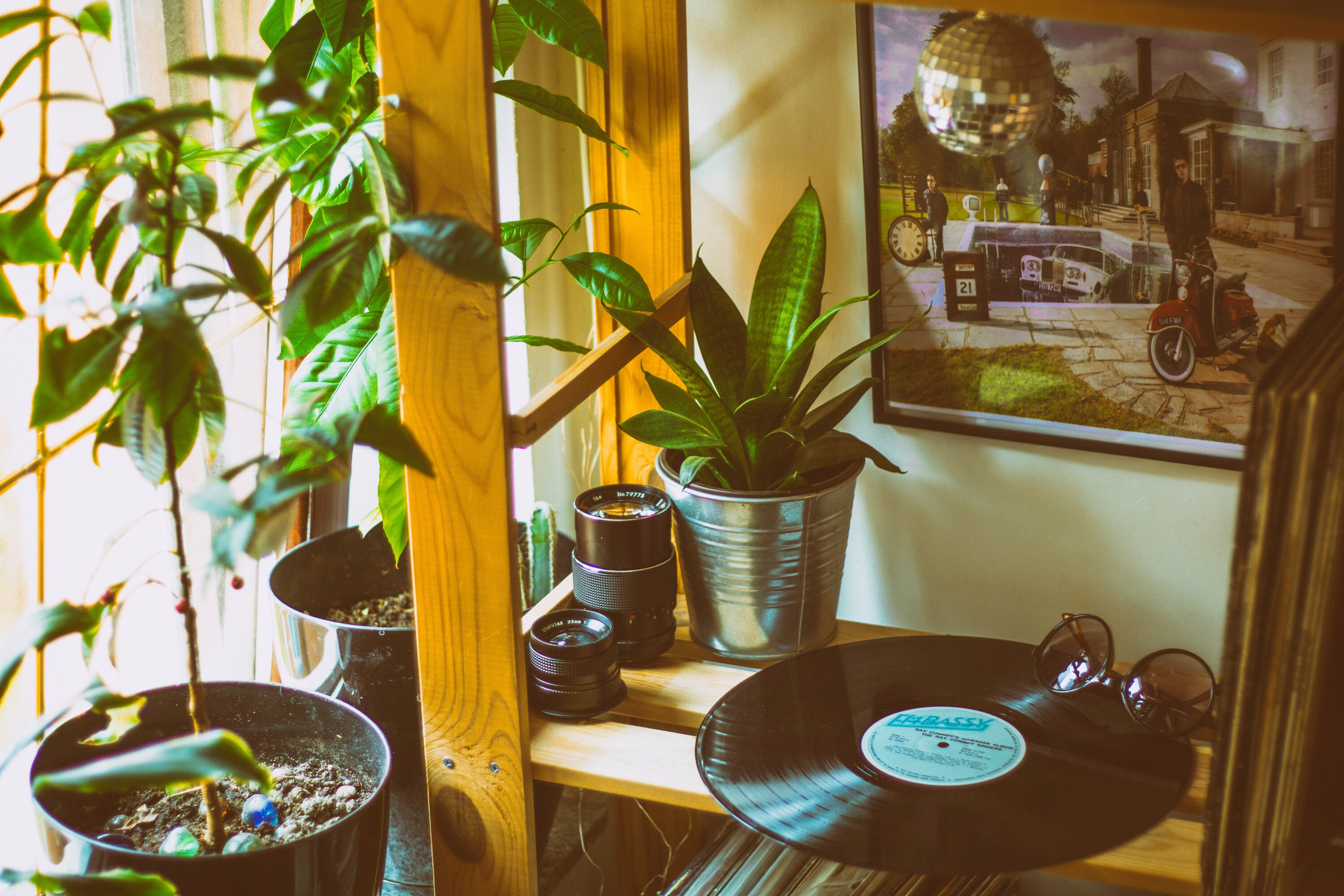50% of vinyl record buyers don’t own a record player to listen to them on
Frightful posers, or dedicated super fans? Data suggests that half of vinyl buyers don’t own turntables. Why could this be?
What would you think if we told you that half of vinyl record buyers don’t even own a record player? Are these people jumping on trends and buying them just for appearances, or are they actually vital to the industry’s growth?
Although it feels like the world’s digitisation is completely taking over, there are still plenty of traditionalists out there propping up the physical music formats sector. 2022 saw vinyl records hit an impressive landmark statistic in the US. Vinyl out-sold compact discs for the first time since 1987. The Recording Industry Association of America (RIAA) reported that consumers bought 41.3 million vinyl records in the US that year. 33.4 million purchased CDs.
This milestone was hit for two reasons: a rise in the popularity of vinyl, and a decrease in the popularity of CDs. It’s widely accepted that vinyl sounds better than CDs, plus the event of the iPod largely contributed to CDs sliding into obscurity.
But, Luminate’s “Top Entertainment Trends for 2023” report found that “50% of consumers who have bought vinyl in the past 12 months own a record player, compared to 15% among music listeners overall.” You don’t need to be a statistician to figure out that that means 50% of people buying vinyl must not own a record player.

What’s going on there, then?
The decorative vinyl record
Hanging a poster of your favourite band is nothing new. Collecting CDs and showing them off on the shelf isn’t either. Ditto vinyl records. But, you’d presume that these CDs and records would get listened to.
Perhaps the turntable-less vinyl buyers are using the records as glorified posters, then. Album artwork can be just as exciting as the music itself, to some. Hardcore audiophiles might scoff at this notion, however.
With the rise of Instagram, people have become increasingly concerned with aesthetics. Are people simply buying vinyl to reinforce a certain “music-lover/cultured individual” aesthetic they’re keen to peddle online?
Most new vinyls come with a digital download code as well. This means that buyers can still access the music, without owning a turntable. The physical vinyl is then free to be used as an attractive decorative feature.
Growth in the gifting market
Just because you buy something, it doesn’t mean you’re the one who will be enjoying it. If you’ve ever found yourself giftless just a couple of days before a loved one’s birthday, a vinyl record could save you.
Vinyl records make a perfect birthday present or gift to mark a special occasion. Regardless of whether the receiver is a vinyl listener, the gift of a physical record is far more ceremonious than an MP3 or WAV. If you and your partner have an “our song”, or you know someone likes a certain artist, vinyl is a pretty safe bet.
Vinyl record x superfans save the day
We don’t mean superfans of vinyl records here. We mean music superfans who buy vinyl records.
“If they’re a music superfan, surely they buy records AND listen to them?”
You would think so. But, the numbers suggest this isn’t the case. A trend that has emerged in the last couple of years implies a “buy-to-own” preference, over the expected “buy-to-listen”.
In 2020 Rob Crutchley of BPI spoke to The Times, explaining that “A proportion of people are buying vinyl because they’re a superfan, so even if they don’t actually have a turntable they’re still keen to support the artist and have the artefact itself.” The idea that people are treating vinyl records like any other piece of merch isn’t so difficult to understand.
Crutchley went on to say that superfans may be keen to own re-pressed editions of classic albums or get their hands on fresh colourways of a record.
These sorts of behaviours could be the thing that helps prop up the music industry in the future. A superfan is defined as someone who spends above-average time and money on music. Superfans also interact with music-related activity online and attended live events. The purchasing of vinyl is a way for superfans to declare their status, connect with fellow music lovers, and express their identity.
As long as superfans exist, the physical music format sector will continue to generate revenue. Whether these people ever place a vinyl record onto a turntable is another thing completely.
